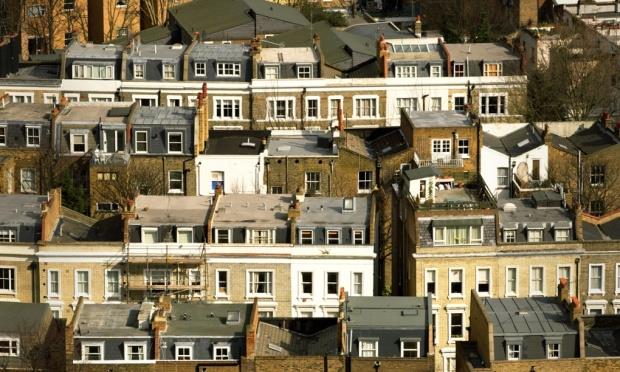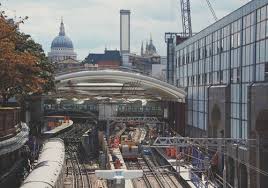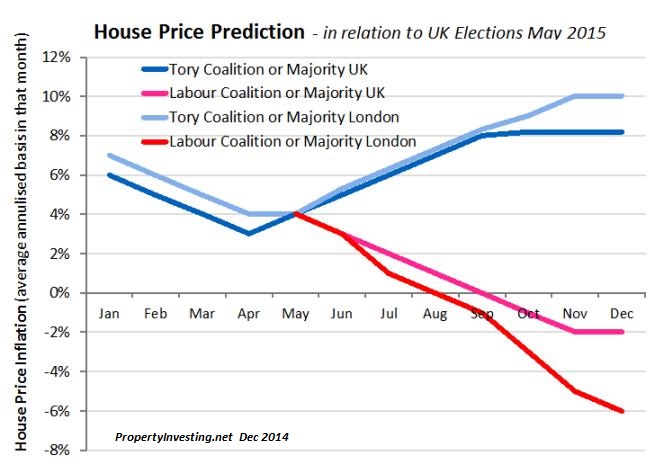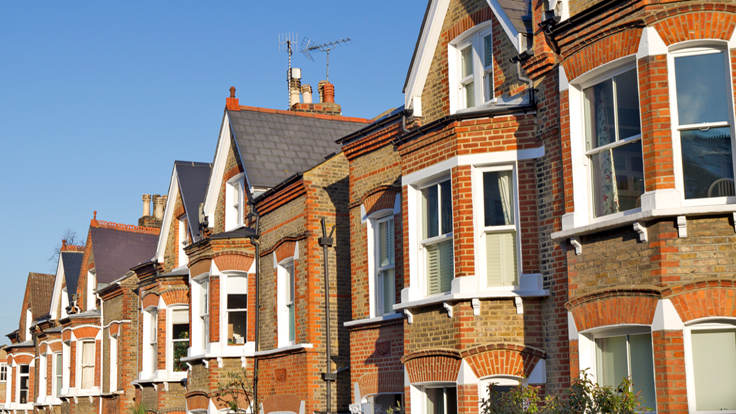Low Oil Prices Boost Property Prices
02-19-2016
PropertyInvesting.net team
More objective guidance and insights for property investors. Our aim is to help you improve your investment returns, flag key risk areas and stimulate strategic thought so you can position your portfolio to maximize gain, for our five thousand website visitors a day and the thousands of people signed up to your Newsletter. This Newsletter cover two key topics:
1. Low Oil Prices Boost House Prices
2. Parents with Children Around 18 Years Old – How to Help Them Make £157,000 Each in 8 Years
1. Low Oil Prices Boost House Prices
Recession Averted By Low Oil Prices: It’s been eight years since the last Great Recession started and the global economy is certainly due another recession of sorts – using a cycle of around 7 years as is normal. What has probably saved the developed nations and China from recession so far has been the c ollapse in the oil prices that started Aug 2014 just when the global economy started slowing. The prices dropped from $110/bbl to around $30/bbl as demand dropped and supply increased – mainly from the US oil shale (fracced wells) which put an extra 5 million barrels of oil a day onto the market between 2009 and late 2014.
ollapse in the oil prices that started Aug 2014 just when the global economy started slowing. The prices dropped from $110/bbl to around $30/bbl as demand dropped and supply increased – mainly from the US oil shale (fracced wells) which put an extra 5 million barrels of oil a day onto the market between 2009 and late 2014.
Transfer of Wealth: The US oil import bill has dropped by around $250 billion a year – a gigantic amount. There has been a massive transfer of wealth from oil exporting nations to oil importing nations in the form of lower oil prices. Big oil producers like Saudi Arabia, Russia, Venezuela, Iraq, Kuwait and UAE have seen their revenues crash. Most countries need $80/bbl to balance the books so they are hurting and Russia has dropped into a fairly severe recession as has Venezuela. There currencies have crashed against the dollar.
Boosting Economies: The low oil prices have the following impact on Western Europe and USA:
· Lowers general inflation
· Boosts the currency values
· Boosts employment and manufacturing
· Boosts disposal incomes
· Reduces deficits
· Reduces borrowing costs
· Increase house prices
PIIGS: Because of the softening global economy, we have not really seen house prices shooting up –  except in places like London and New York. But without these low oil prices, Greece, Ireland, Spain and Italy would be suffering far more than they are at this time. Its saving these economies from recession. It drastically reduces their deficits.
except in places like London and New York. But without these low oil prices, Greece, Ireland, Spain and Italy would be suffering far more than they are at this time. Its saving these economies from recession. It drastically reduces their deficits.
US Energy Sufficiency: As developed nation’s economies have struggled – the US dollar has been boosted because of its safe haven status. Furthermore, the gigantic new oil reserves proven from the oil shale fraccing boom are underpinning the dollar – and have likely saved the currency from what was looking like a massive slide, because deficits have been halved by the lack of requirement to import oil. Furthermore – because the USA is almost self-sufficient in energy requirements (oil/ gas/ coal/ electricity) they have not felt the need to mount so many military incursions – their foreign policy has been relatively passive compared to the period 2000-2010. This is saving the US $100 billions – money that can be invested in other national projects or reducing borrowing instead.
Mighty Dollar: The other handy thing about the US oil production has been – because it strengthens the might dollar – this also means the US are able if they need to – to print more dollars without it effecting the currency value much.
 Fed Action: If we roll back a few months, Yellen put up interest rates just before year end. This was a complete joke – in that it was possibly the worse time in the last 7 years the Fed could have acted. They only pout up rates because they had promised the markets they would be year end - they did not want to lose face. It was obvious by Dec 2015 the global economy was getting into choppy waters and the dollar increase with the increase in borrowing rates was enough to spook global markets and we had China and Japan starting to implode by Jan 2016. Oil prices crashed even further to $27/bbl - putting added strain on Russia, Saudi, and all oil exporting nations, destabilizing the global economy. Around the same time the US let Iran back into the global markets – causing consternation in many Middle Eastern countries.
Fed Action: If we roll back a few months, Yellen put up interest rates just before year end. This was a complete joke – in that it was possibly the worse time in the last 7 years the Fed could have acted. They only pout up rates because they had promised the markets they would be year end - they did not want to lose face. It was obvious by Dec 2015 the global economy was getting into choppy waters and the dollar increase with the increase in borrowing rates was enough to spook global markets and we had China and Japan starting to implode by Jan 2016. Oil prices crashed even further to $27/bbl - putting added strain on Russia, Saudi, and all oil exporting nations, destabilizing the global economy. Around the same time the US let Iran back into the global markets – causing consternation in many Middle Eastern countries.
Property Price Boost: We describe all of this as the back-drop to asset and property prices, particularly in the UK. As we have long mentioned before, if oil prices are low – it creates a huge boost to property prices since the Bank of England have not reason to put up interest rates because inflation is suppressed so much. The effects of the low oil prices will start to wear off in about a year’s time, but until then – there is almost no chance the Bank of England will raise rate.
Depression in West Wales: There is a lot of talk about needing to raise rates to control London property  prices, but what people fail to realise is that property prices in vast tracts of the UK are still far below their 2007 peaks. If you go to west Wales, Cumbia, Sunderland, Clydebank, Liverpool or Stoke on Trent – these places have been in a constant recession since 2007 – a great depression. Higher interest rates are the last thing these places need. Just look down the average high street in most UK towns and you will see shops closing, high youth unemployment and stagnant property prices. The kiss of death would be interest rates rising – just as manufacturing is going into recession and the North Sea and NE Scotland has crashed and burnt. It’s just most of the journalists who writing in paper about house prices live in London – maybe they should take the train to Barrow-in-Furness to see what the other side is like!
prices, but what people fail to realise is that property prices in vast tracts of the UK are still far below their 2007 peaks. If you go to west Wales, Cumbia, Sunderland, Clydebank, Liverpool or Stoke on Trent – these places have been in a constant recession since 2007 – a great depression. Higher interest rates are the last thing these places need. Just look down the average high street in most UK towns and you will see shops closing, high youth unemployment and stagnant property prices. The kiss of death would be interest rates rising – just as manufacturing is going into recession and the North Sea and NE Scotland has crashed and burnt. It’s just most of the journalists who writing in paper about house prices live in London – maybe they should take the train to Barrow-in-Furness to see what the other side is like!
Property prices in England - are likely to rise in the next 12 months – even further because:
- Rising immigration
- Lack of home building – lack of investment

- Lack of suitable land for resident building – and slow planning process with Nimbyism
- Pent up demand from renters that could not move 2008-2014 because of low accessibility to finance
- Lack of good investment alternatives – e.g. risky stock market, bonds
- Low inflation and hence interest rates and borrowing costs because of:
· Low oil prices
· Low wage inflation because of immigration – high labour supply
· Technology, manufacturing, efficiency and innovation bringing retail prices down
· Greater competition in the banking sector
· Bank of England refraining from printing more money at this time
Printing More Money: Its worth flagging if property prices in London start sliding – it will mean the rest of the UK will be in recession and the way the Bank of England will react to this threat is to simply print more money. This will then inflate house prices back up again. It would suppress the value of Sterling and international buyers would then find London property prices far more attractive – like they did 2008-2012. We’d get another boost to West London property prices. What we are saying is – in England – the Bank of England will not allow massive deflation – they will simply print more money to prop the whole lot up.
 Gold: Its worth keeping a very close watch on gold and silver prices. We have for many years now been big fans of gold and silver – it’s not exactly performed well in the last 3 years, but it’s worth remember gold and silver should be held like an insurance policy against either very high inflation (printing of money) or financial collapse (deflation and every other asset losing its value). What we have seen recently is a gigantic deflation in oil and commodities prices – in large part because China demand has slowed and the global economy is looking decidedly shaky. Because interest rates in the US looks very unlikely to rise in this current environment, this depresses the US dollar value, and increases gold’s value as a safe have asset class. There has been a big switch from mid Dec 2015 when many investors wrongly expected rates to rise – to mid January when common sense has reverted – and there is no way rates can rise – otherwise it would cause a massive global recession in China and the rest of the world. China has found its currency under pressure and has been burning through huge amounts of dollar reserves to defend it against the US dollar. All this is very good news for gold – don’t be surprized to see gold shoot up to $1800/ounce by year end and silver from $15/ounce to $20/ounce. Any really bad news in the dollar financial domain will cause gold and silver to skyrocket, and we thing trouble is just around the corner – that will lead the Fed to start the “electronic” printing presses again. This will be great news of gold prices.
Gold: Its worth keeping a very close watch on gold and silver prices. We have for many years now been big fans of gold and silver – it’s not exactly performed well in the last 3 years, but it’s worth remember gold and silver should be held like an insurance policy against either very high inflation (printing of money) or financial collapse (deflation and every other asset losing its value). What we have seen recently is a gigantic deflation in oil and commodities prices – in large part because China demand has slowed and the global economy is looking decidedly shaky. Because interest rates in the US looks very unlikely to rise in this current environment, this depresses the US dollar value, and increases gold’s value as a safe have asset class. There has been a big switch from mid Dec 2015 when many investors wrongly expected rates to rise – to mid January when common sense has reverted – and there is no way rates can rise – otherwise it would cause a massive global recession in China and the rest of the world. China has found its currency under pressure and has been burning through huge amounts of dollar reserves to defend it against the US dollar. All this is very good news for gold – don’t be surprized to see gold shoot up to $1800/ounce by year end and silver from $15/ounce to $20/ounce. Any really bad news in the dollar financial domain will cause gold and silver to skyrocket, and we thing trouble is just around the corner – that will lead the Fed to start the “electronic” printing presses again. This will be great news of gold prices.
Inflation All The Way: Over the years – the average house prices have risen every decade without fail – the UK loves inflation. Its ingrained. Let’s list the average property prices – a West London flat – guess what it will cost in 2030?
1946 £1,500
1970 £15,000
1980 £30,000
1990 £65,000
2000 £120,000
2010 £300,000
2016 £450,000
….2030 – surely it will be well over £1,000,000
With the UK’s borrowing and economic outlook – deflation is simply not a viable option. We have to be constantly inflating otherwise the economy would implode.

Asset Rich: This means people with assets get richer and those without assets get poorer. The strategy should be to have as many hard assets like property as possible – without over-extending. This is the only  way to survive the gigantic inflation onslaught. Savings get wiped out. Interest rates are zero. Even commodities have crashed, and it’s almost impossible to back a winner on the stock market. The only realistic place to park and make money is through property, but now with the tax treatment on buy-to-let landlords, it will be a whole lot more difficult. If the government don’t want to create a rental crisis – they will reverse their plan. Expect rents to skyrocket as a massive shortage of rental property starts to hit home mid 2016 onwards as the tax impact starts to take effect – particularly in London.
way to survive the gigantic inflation onslaught. Savings get wiped out. Interest rates are zero. Even commodities have crashed, and it’s almost impossible to back a winner on the stock market. The only realistic place to park and make money is through property, but now with the tax treatment on buy-to-let landlords, it will be a whole lot more difficult. If the government don’t want to create a rental crisis – they will reverse their plan. Expect rents to skyrocket as a massive shortage of rental property starts to hit home mid 2016 onwards as the tax impact starts to take effect – particularly in London.
2. Parents with Children Around 18 Years Old – How to Help Them Make £157,000 Each in 8 Years
The average young person now rents a property for about 8 years at a cost of £60,000 before they save their deposit and buy a property. Meanwhile the value of the property they eventually buy, all the time, has risen higher. This £60,000 of course goes to the Landlord that then makes the capital value increase from inflation. This model is the new norm in the UK – but it never used to be like that. Back in the mid-1980s, young people got a job, may be paying £10,000 a year, and a flat in West London for about £50,000 – after saving a 5% deposit – that’s £5,000 and paying no stamp duty and fees of about £600. If they went to college, with no college fees, they could save the deposit after a year – by age 22.
 Forward on the 2016. The government have started the scheme “Help-To-Buy”. This means someone who is 18 years old can save £12,000 – then the government give a free £3000 top-up, that’s a £15,000 initial deposit. The person can then apply for a 15% (£45,000) deposit funding from the Government top-up, then borrow the remaining 80%, or £180,000 from the bank, to buy a property worth around £240,000. Of course property prices are far higher today – costing around £200,000 for an average UK home – when compared to the 1980s. Let’s say the property purchased has three bedrooms. The young person would have to earn around £40,000 and/or get some help from their parents (or parents acting as a guarantor). Mortgage payments would be around £850 on the full £225,000 mortgage. But if they had two lodgers – and got £400 a month from each, the costs would be almost zero – in effect the two lodgers pay for the mortgage. They could be doing this when they are may be 22 years old – with a little support from their parents.
Forward on the 2016. The government have started the scheme “Help-To-Buy”. This means someone who is 18 years old can save £12,000 – then the government give a free £3000 top-up, that’s a £15,000 initial deposit. The person can then apply for a 15% (£45,000) deposit funding from the Government top-up, then borrow the remaining 80%, or £180,000 from the bank, to buy a property worth around £240,000. Of course property prices are far higher today – costing around £200,000 for an average UK home – when compared to the 1980s. Let’s say the property purchased has three bedrooms. The young person would have to earn around £40,000 and/or get some help from their parents (or parents acting as a guarantor). Mortgage payments would be around £850 on the full £225,000 mortgage. But if they had two lodgers – and got £400 a month from each, the costs would be almost zero – in effect the two lodgers pay for the mortgage. They could be doing this when they are may be 22 years old – with a little support from their parents.
Saving from Renting: They would then save around £60,000 in rent in the forthcoming 8 years. Better still, they would also benefit from the house price inflation – which runs at a long ter m trend rate of 5% a year. So the property of £240,000 should be worth £337,000 after 8 years (that’s a cumulative 5% increase a year only), even without the person renovating or improving the property or trading up. So that’s a saving of £60,000 on rent and a capital value increase of £97,000 – totalling a cool £157,000 after 8 years. So someone that gets on the property ladder at 22 years old and has two lodgers for a period of 8 years – will be £157,000 better off by the age of 30 than someone who just does not bother and decides to rent instead.
m trend rate of 5% a year. So the property of £240,000 should be worth £337,000 after 8 years (that’s a cumulative 5% increase a year only), even without the person renovating or improving the property or trading up. So that’s a saving of £60,000 on rent and a capital value increase of £97,000 – totalling a cool £157,000 after 8 years. So someone that gets on the property ladder at 22 years old and has two lodgers for a period of 8 years – will be £157,000 better off by the age of 30 than someone who just does not bother and decides to rent instead.
Return on Investment: When you look at the return on investment, it’s even more impressive. Assuming the 22 person raised £12,000 cash plus pays £3000 in fees, that’s a £15,000 investment. Then after 8 years their equity increases to £337,000 minus debt of £225,000 – or net £117,000. Hence £15,000 grows to £117,000 which is a gigantic 750% return on investment (or 7.5 fold increase), or an annualized 34% cumulative return on investment. That’s better than Warren Buffett!
 Asset Rich Get Richer Through Inflation and Property: So if you are asset rich, which frankly you statistically probably are because you are reading this property investing article, and you have kids just coming to age 18 – you would frankly be a mug not to help then buy a property – with a few extra bedrooms to let to lodgers. Helping them continue the family business – this time for themselves. The benefit for yourself will be that you will not have to help them any further financially once they have got a foot on the property ladder and a few good paying lodgers to help them pay their mortgage. If the property title is in their name – singularly is best (no ventures or partners advised), then no second home 3% stamp duty will be payable. Also the government will help with a £3000 free add in and lending a 15% deposit – all to the first time buyer – your son or daughter. Even if price prices are completely stagnant, your offspring should still be up £60,000 after 8 years (age 30) because they have not been paying any rent. The other benefits will be helping coach your kids in property investment, property management, being a good landlord and being a responsible person. Also remember income from lodger is tax free up to a level of £4250 a year – for a single person (only half this amount for two people). The government are actively trying to encourage lodgers. It’s also worth also mentioning that lodgers have very few rights compared to proper tenants, you can give notice easily if things don’t work out. This should take the stress away from your offspring and the management of the lodgers.
Asset Rich Get Richer Through Inflation and Property: So if you are asset rich, which frankly you statistically probably are because you are reading this property investing article, and you have kids just coming to age 18 – you would frankly be a mug not to help then buy a property – with a few extra bedrooms to let to lodgers. Helping them continue the family business – this time for themselves. The benefit for yourself will be that you will not have to help them any further financially once they have got a foot on the property ladder and a few good paying lodgers to help them pay their mortgage. If the property title is in their name – singularly is best (no ventures or partners advised), then no second home 3% stamp duty will be payable. Also the government will help with a £3000 free add in and lending a 15% deposit – all to the first time buyer – your son or daughter. Even if price prices are completely stagnant, your offspring should still be up £60,000 after 8 years (age 30) because they have not been paying any rent. The other benefits will be helping coach your kids in property investment, property management, being a good landlord and being a responsible person. Also remember income from lodger is tax free up to a level of £4250 a year – for a single person (only half this amount for two people). The government are actively trying to encourage lodgers. It’s also worth also mentioning that lodgers have very few rights compared to proper tenants, you can give notice easily if things don’t work out. This should take the stress away from your offspring and the management of the lodgers.
 Duplication Makes Sense: If you have two kids, then you just need to duplicate it – you could help two kids make £364,000 in 8 years from age 22 to 30. Of course, once they get to bug – by age 30 or far earlier – they will be flying, trading up, re-mortgaging and amassing their own portfolio of properties to gain financial independence at the earliest age possible. They will of course be financially free from the bank of mum and dad – so that’s the other benefit!
Duplication Makes Sense: If you have two kids, then you just need to duplicate it – you could help two kids make £364,000 in 8 years from age 22 to 30. Of course, once they get to bug – by age 30 or far earlier – they will be flying, trading up, re-mortgaging and amassing their own portfolio of properties to gain financial independence at the earliest age possible. They will of course be financially free from the bank of mum and dad – so that’s the other benefit!
Opportunity Value: It’s also worth mentioning that an alternative investment into your own property portfolio rather than starting your kids – would suffer from 3% extra stamp duty, capital gains tax and even the next 20% income tax threshold – instead your kids get a tax break with lodgers. So financial speaking for most hard working families, it makes economic sense to help your kids onto the property ladder rather than expand your own portfolio at this time.
We hope you like this idea-concept and find it valuable – and we are pretty sure many of you will run with it. All totally for free as usual! If you have any queries or comment, please contact us on enquiries@propertyinvesting.net

